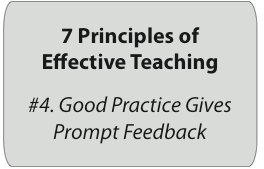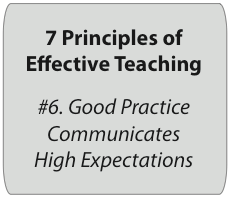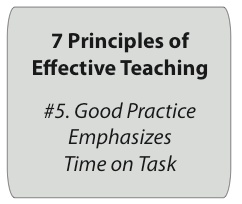Documentation:Faculty Resource Guide/Tools

This section outlines some of the main technologies and tools that people at UBC use in a variety of ways to support teaching and learning. Your Instructional Support Unit can assist you with more information about:
- these and other learning technologies;
- training opportunities to learn how to use the tools; and
- strategies for integrating them into your teaching practice and course curriculum.
Here are some of the main technologies and tools to get you started:
Respondus
Respondus Quiz is an assessment software for quickly creating and managing exams or quizzes that can either be printed and distributed as paper copies or imported to a Canvas course. Exams can be created offline in a Windows environment or using virtualization software such as Parallels on Macs, and moved from one system to another. You can also add images, audio and links to your question for more media-enriched exercises. Exams and quiz questions are stored into a database for reuse in future assessments. Respondus is designed to make quiz authoring faster and easier. UBC has a site license that permits UBC instructors to use Respondus.
Learn more about how you can use Respondus to enhance your teaching: LT Hub Respondus Quiz Guide
StudyMate
Respondus Studymate is a desktop software instructors can download and use to create simple, animation-based activities and games using custom course content. For more information visit the Learning Technology Hub Respondus Studymate guide.
Wimba Classroom
This tool is a cross-platform live virtual classroom that enables you to easily add elements of interaction into any WebCT Vista course. It gives you the capability to add audio and multi-way video, share applications and integrate various content types, such as PowerPoint presentations, polling questions and websites. Overall, Wimba Classroom can easily enrich any text-based online classroom environment by enabling real-time online classes, office hours, guest lectures and meetings.
For more information, please visit: http://www.elearning.ubc.ca/toolkit/wimba-classroom/
Wimba Voice
Wimba Voice are web-based tools that are integrated directly into WebCT Vista and that facilitate and promote vocal instruction, collaboration, coaching and assessment. The Wimba Voice tools include voice discussion boards, a podcaster, voice-enabled email and presentations, as well as the ability to embed voice within individual content pages. Overall, Wimba Voice is a great way to help increase the interaction and student engagement level with the online learning environment.
For more information, please visit: http://www.elearning.ubc.ca/toolkit/wimba-voice-tools/
More Learning Technologies
e-Portfolios
e-Portfolios are online collections of your work that allow you and your students to demonstrate your skills and interests to diverse audiences. Highly customizable, e-portfolios allow you to assemble subsets of your work to present to instructors, potential employers and others via login. e-Portfolios have shown great potential to document individual learning and growth for UBC students and instructors.
The Centre for Teaching, Learning and Technology offers information on and access to piloted softwares, training and assistance with integrating e-portfolios into your course and coordination of a campus-wide Community of Practice that facilitates information exchange. If you are interested in using learning e-portfolios in your class with your students, in developing a personal teaching e-portfolio, or joining the Portfolio Community of Practice, please visit these websites:
http://www.elearning.ubc.ca/eportfolio http://blogs.ubc.ca/portfolios
Finding and Sharing Open Content Every instructor who has worked online knows that the intellectual property issues are endless, and endlessly complex. The good news is that there is a movement to share freely available and openly-licensed educational materials online. Open education may take the form of MIT’s commitment to share all of its course materials for free, or an individual educator who licenses her or his work with a Creative Commons license.
If you are interested in finding or sharing open educational resources (OERs), feel free to contact Brian Lamb at the Centre for Teaching, Learning and Technology for more information: brian.lamb@ubc.ca
- MIT OpenCourseWare: http://ocw.mit.edu
- More OER providers: http://oercommons.org/oer/providers
- Creative Commons Canada: http://creativecommons.ca

iPeer
iPeer is an application that allows you to develop and deliver rubric-based peer evaluations. Instructors can easily develop and deliver these evaluations to students online. It simplifies instructor work flow and logistics associated with the use of peer evaluations in group and team environments. It now includes TeamMaker that lets you survey your students and build the teams from the results.
For more information, please visit: https://lthub.ubc.ca/guides/ipeer/
Pachyderm
Pachyderm is an easy-to-use multimedia authoring tool. It empowers non-technical academic experts and students to create attractive, interactive Flash-based multimedia presentations by filling out online template forms.
For more information, please visit: http://pachyderm.nmc.org
Podcasting
Podcasting is a method of delivering audio (mp3) files through the use of Really Simple Syndication (RSS) technology. This gives an instructor the ability to automatically distribute recorded lectures to students who have missed them or who simply want to review the lessons. Podcasting holds great promise in many areas including distance education delivery, facilitating guest speakers and aiding students with disabilities.
For more information, please visit:
- http://www.estrategy.ubc.ca/news/update0412/0412-podcasting.html
- http://www.educause.edu/ELI/7ThingsYouShouldKnowAboutPodca/156806
Really Simple Syndication (RSS)
RSS is a family of web feed formats used to publish frequently updated content such as blog entries, news headlines and podcasts in a standardized format. A RSS document, called a web feed, contains either a summary of content from an associated website or the full text. RSS makes it possible for people to keep up with websites in an automated manner.
To learn more, watch this video: http://www.commoncraft.com/rss_plain_english
Social Media
The explosion of “Web 2.0” media has opened up unlimited possibilities for sharing and finding ser-generated media online. Whether it is the photo sharing service Flickr, online video via YouTube and blip.tv, setting up your social network on Ning, collaborative writing on Google Docs – the possibilities are endless, though the questions these services raise can be endless as well. EDUCAUSE has established an outstanding series of short tutorials geared towards educators, briefly communicating “7 Things” about a wide array of online applications.
For more information, please visit: http://www.educause.edu/ELI7Things/7495
Student Response Systems (Clickers)
Clickers are wireless handheld devices that allow students to respond to classroom polls and quizzes, regardless of class size. These remote-like gadgets transmit individual student responses to an instructor’s laptop to record and even share these results directly back to the class. Instructors can also use this data to customize their lessons for each learning group.
Clickers can:
- increase class participation and improve attendance;
- spark debate and discussion in class; and
- identify students who need additional assistance
UBC Vancouver moved to i>clicker as the supported clicker system effective September 2008. For more information, please visit these websites:
In this article, Nobel Laureate Dr. Carl Wieman discusses the need to revolutionalize science teaching pedagogy by incorporating technology (such as the clickers) into teaching and learning: http://update.estrategy.ubc.ca/2006/02/06/professor-my-brain-is-full
The Educause Learning Initiative (ELI) has a ‘7 Things’ you should know about resource: http://www.educause.edu/ir/library/pdf/ELI7002.pdf
The Clicker Resource Guide: An Instructors Guide to the Effective Use of Personal Response Systems (Clickers) in Teaching: http://www.cwsei.ubc.ca/resources/files/Clickers_Final_Version_04_08.pdf

Turnitin
UBC subscribes to a web-based service called TurnItIn. This service scans submitted papers for material copied from public websites, papers purchased from paper mills, essays and assignments previously submitted to TurnItIn and some published works (e.g. journals). The advantages of subscribing to this service are that it helps reinforce academic integrity as a core value of the university, it responds to a growing concern about a “level playing field” for all students and it reinforces the need to provide university-wide instruction in writing.
For more information and access, please visit: http://www.vpacademic.ubc.ca/integrity/turnitin/index.htm
Weblogs
Weblogs offer a means to narrate your work online. Hundreds of webloggers at UBC are exploiting the simplicity and flexibility of their tools for a wide range of uses:
- instructors use them to communicate with their students;
- researchers track their progress and communicate with peers around the world; and
- project managers post updates and documents.
The Centre for Teaching, Learning and Technology (CTLT) offers hosting, training, technical support, custom designs and enhanced features such as privacy controls, audio and video blogging. The CTLT can also network multiple weblogs for easier management and enhanced interaction amongst groups (such as a course full of students).

Wikis
Wikis are websites where anyone viewing the website may be allowed to make changes and additions to its pages. By allowing readers to instantly become contributors, wikis are simply the fastest way to get text online. With the most basic wikis, anyone can post content from any internet-enabled computer. They can function as web-based sketch pads or online bulletin boards and support informal planning and brainstorming. They can also make exceptionally useful collaborative writing spaces, and it’s easy to get started with your own wiki in a matter of minutes. UBC hosts wiki spaces for the use of its learning community, and consultation and training is freely available. And yes, you can create private or edit-protected wiki pages if you prefer.
Other Software, Technology and Tools
UBC is home to a thriving community of online educators and if you are interested in some way of using technology to support instruction, it’s probable that someone else on campus is as well. If you are interested in learning more, or are looking to connect with like-minded users, feel free to contact your ISU. The Centre for Teaching, Learning and Technology may also be able to connect you with the information or people you are looking for.
For more information, please visit: http://ctlt.ubc.ca